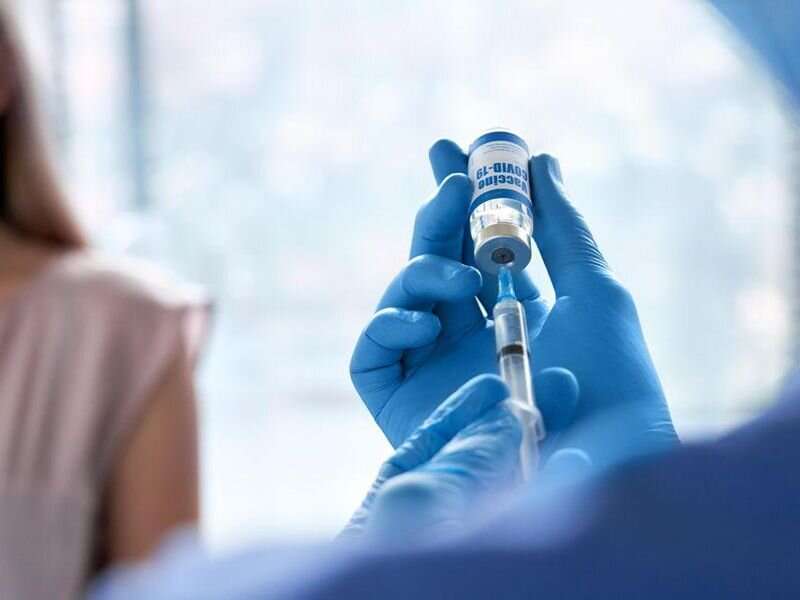

(HealthDay)—Among Israeli adults aged 60 years and older, those receiving a third booster dose of the Pfizer-BioNTech COVID-19 vaccine have rates of confirmed COVID-19 and severe illness that are substantially lower than the rates seen for individuals only receiving the two original vaccine doses, according to a study published online Sept. 15 in the New England Journal of Medicine.
Yinon M. Bar‑On, from the Weizmann Institute of Science in Rehovot, Israel, and colleagues compared the rate of confirmed COVID-19 cases and the rate of severe illness (July 30 through Aug. 31, 2021) between those who had received a booster injection at least 12 days earlier (booster group) and those who had not received a booster injection (nonbooster group). The analysis included 1,137,804 persons ages 60 years and older who had been fully vaccinated at least five months earlier.
The researchers found that ≥12 days after the booster dose, the rate of confirmed infection was lower in the booster group than in the nonbooster group by a factor of 11.3. Similarly, the rate of severe illness was lower by a factor of 19.5. Compared with the rate of infection four to six days after the booster, the rate of confirmed infection ≥12 days after vaccination was lower by a factor of 5.4.
Source: Read Full Article